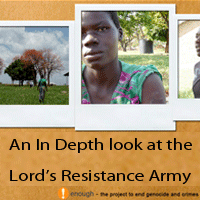-
Posted by Enough Team on Jul 16, 2009

Our latest report – Eastern Congo: An Action Plan to End the World's Deadliest War – is out now and offers a five-point approach to confronting the world’s deadliest war, where rape as a weapon of war is a daily feature of the conflict. The paper pinpoints and details tasks that policymakers and activists should rally behind:
- Protecting civilians
- Implementing an effective counterinsurgency strategy against the Democratic Forces for the Liberation of Rwanda, or FDLR
- Ending the trade in conflict minerals
- Promoting regional peace and economic cooperation
- Promoting accountability
The paper by Enough Co-founder John Prendergast and analyst Noel Atama argues that this multi-layered and immensely complex conflict can only end when the international community abandons its piecemeal approach to conflict management and adopts a new approach focused on these five points. As Atama explains:
A revamped approach requires a careful combination of all the tools available to policymakers, from aggressive multilateral diplomacy and conditioned foreign assistance to targeted sanctions and, in rare cases, carefully planned military action.
As the report and accompanying activist brief make clear, sustained attention from activists and concerned citizens is imperative for generating the political will to leverage these tools effectively. As Prendergast emphasizes, the conflict in Congo is linked to us as consumers, even if we may feel far removed:
Congo's stain on our collective conscience is deep, but so too is the connection between our daily lives and those of Congolese people fighting to break the cycle of conflict and misery. Policymakers must fully acknowledge the role that the Congolese government and its neighbors-particularly Rwanda and Uganda-play in fuelling violence and profiteering from Congo's state weakness and chronic conflict. Citizen pressure on policymakers and the corporations that benefit from the trade in conflict minerals-including American and European cell phone, laptop, and jewelry manufacturers-is a critical element of a worldwide effort to end the crisis in eastern Congo once and for all.
Photo: Displaced people return to an IDP camp after being forced to flee fighting near the camp a day earlier. Enough/Laura Heaton
Recent Publications
- Jul 16, 2009Advocacy | Eastern Congo | John Prendergast | Peace
- Jun 22, 2009Advocacy | Darfur and Southern Sudan | Maggie Fick | Peace | Prevention | Strategy Papers
- Jun 10, 2009Adam O'Brien | Darfur and Southern Sudan | Genocide | Peace | Prevention | Protection | Strategy Papers
- May 13, 2009Darfur and Southern Sudan | Eastern Congo | John Prendergast | Sexual Violence | Speeches and Testimonies | Violence Against Women
Upcoming Events
- Sep 19, 2009
- Sep 19, 2009
- Sep 26, 2009
- Sep 27, 2009
- Oct 3, 2009
LISTEN
It's been a busy couple of weeks for Sudan policy. To debrief on all of the action, Sudan activists joined Enough's John Prendergast and John Norris for a conference call. Didn't get the chance to join? Catch up with a recording of the call.
From Mines To Mobile Phones
WATCH a slide show detailing how conflict minerals go from the mines of Congo to your cell phone, iPod, and other electronics products.
LISTEN
Introducing the new Enough Podcast. This week we're taking a look back on World Refugee Day and the surrounding events. Enough Executive Director John Norris reminds us why Refugee Day matters and Enough Said blogger Laura Heaton reflects on some of the week's highlights.
Check out Enough's Products
Subscribe to
Enough Said Blog
Enough Project E-newsletter
 Try Enough's Week In Photos. See the most recent events along with Enough's policy recommendations and analysis. Try Enough's Week In Photos. See the most recent events along with Enough's policy recommendations and analysis. |
Obama on Genocide
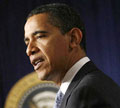 READ a transcript of President Obama's keynote address at the Holocaust Memorial Museum’s Days of Remembrance ceremony. READ Laura Heaton's Blog post.
READ a transcript of President Obama's keynote address at the Holocaust Memorial Museum’s Days of Remembrance ceremony. READ Laura Heaton's Blog post.
LEARN about the key Darfur advocates who attended the recent White House meeting with President Obama and his Special Envoy to Sudan General Scott Gration.
Lobby Congress To Help End the Conflict in Central Africa
|
|
VISIT "How It Ends" for more information on the event.
READ The reaction to the LRA Bill, HR 2478, from Enough and other leading groups in the Human Rights community.
For more information on the Lord's Resistance Army and the conflict in Central Africa, visit our special LRA page.
International Criminal Court
|
READ full coverage of the International Criminal Court action against Sudan President Omar al-Bashir. |
Join the Movement
Campaigns & Initiatives
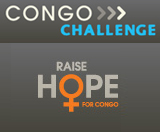 |
| RAISE Hope For Congo |
|
Take the Congo Challenge - RAISE awareness, RAISE your voice, RAISE the profile of the deadliest war in the world. And then challenge others to join the movement. More info |
 |
| Darfur Dream Team |
|
Check out the Sister Schools Program at our NEW Darfur Dream Team site. Pro-basketballer Tracy McGrady, Enough Project and partners are connecting schools and universities with students in the Darfuri refugee camps. |
 |
| Darfur Christian Action |
|
Enough, in partnership with the Church Communication Network, recently co-hosted a simulcast event highlighting the needs and opportunities for individuals and churches to get involved in ending the crisis in Sudan. The broadcast, originally shown in over 90 locations across North America, is now available online here. |
LISTEN
Recently Enough's Executive Director John Norris sat down with Bridget Conley-Zilkic of the U.S. Holocaust Museum to answer the big question: Can Genocide and Crimes Against Humanity be Ended?
Find the full podcast and a transcript here.
| Check out Enough's podcast page here. |  |
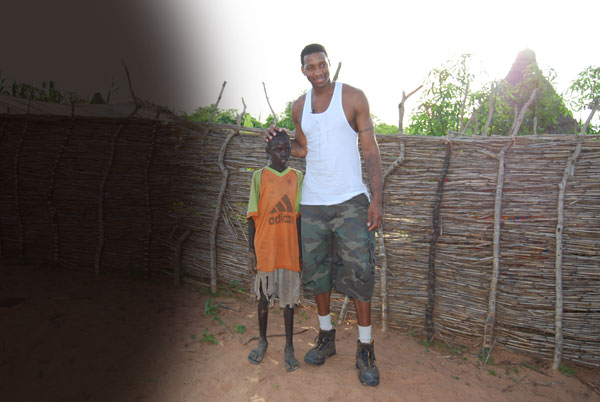


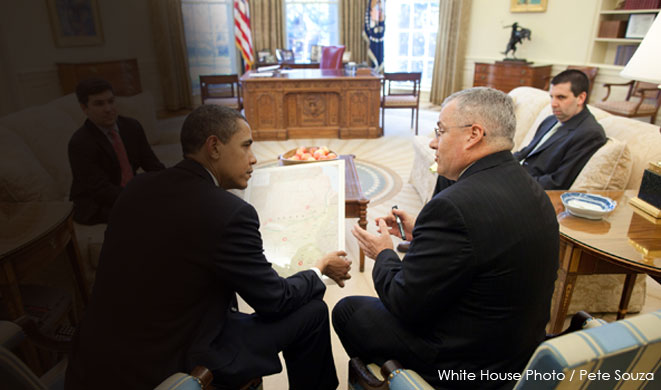
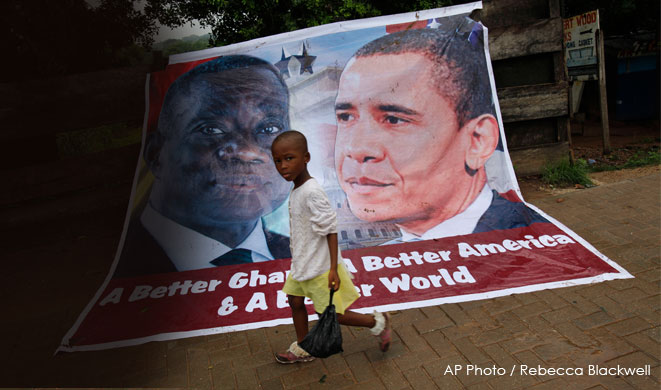
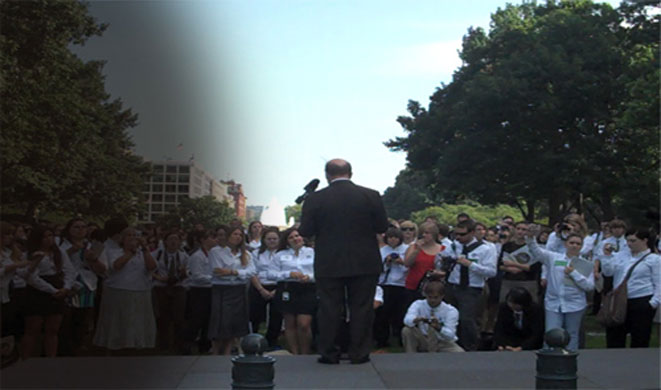




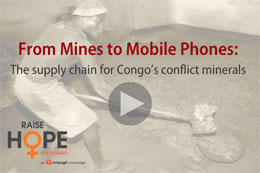

 Enough joined forces with Invisible Children and Resolve Uganda for the "How it Ends Lobby Days"
Enough joined forces with Invisible Children and Resolve Uganda for the "How it Ends Lobby Days" 